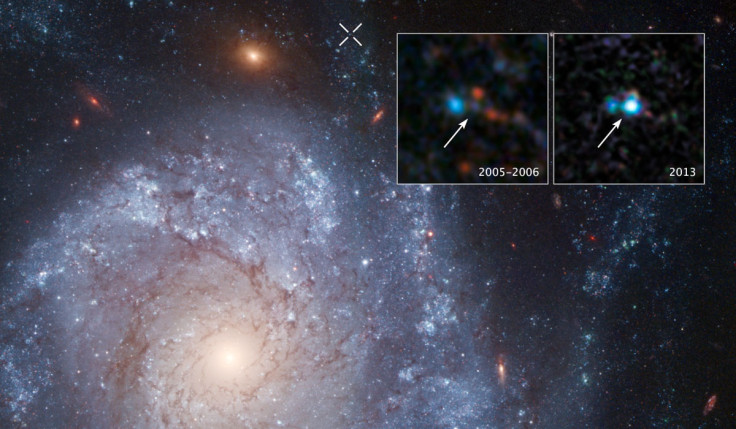Astronomers Discover 'Zombie Stars' Created by Stellar Supernovas

Scientists have discovered that supernovas - the most powerful explosions in the universe - do not always succeed in destroying the stars caught up in them, sometimes creating what astronomers call "zombie stars".
Supernovas occur when a star explodes in enormous blasts of radiation amounting to the total amount of energy emitted by a star in its lifetime, and which briefly shine brighter than the entire galaxies they occur in.
Astronomers made their discovery while looking into the origins of stellar blasts known as Type Ia supernovas, which occur when a star transfers enough energy onto a dying white dwarf star to create the explosion.
The discovery is detailed here.
Study co-author Saurabh Jha, from Rutgers University in New Jersey, said: "Astronomers have been searching for decades for the progenitors of type Ias. Type Ias are important because they're used to measure vast cosmic distances and the expansion of the universe."
The data came from images of a supernova, named SN 2012Z, taken in 2012. These were then contrasted with images from Nasa's Hubble Space Telescope of the region - NGC 1309, 110 million light-years away - taken in 2005, 2006 and 2010 before the blast occurred.
This helped them locate the star which originated the blast, with scientists claiming 99% certainty that their discovered star is related to the Ia supernova. Only SN 2012Z was actually a Type Iax supernova, which are rarer than Ias and release only a fraction of the energy.
This weaker explosion - which consisted of a white dwarf and a blue companion star - left behind a near-destroyed white dwarf, which researchers dubbed a "zombie star".
The discover has called into question the origins of Type Iax supernovas versus Type Ias, suggesting they may be very different.
Curtis McCully, also from Rutgers and who lead the study, told Space.com: "We were tremendously excited to see a progenitor system for this supernova. No one had ever seen a progenitor system for a white-dwarf supernova in pre-explosion data, so our expectation was that we wouldn't see anything.
"Nature surprised us, which is always exciting."
© Copyright IBTimes 2025. All rights reserved.






















